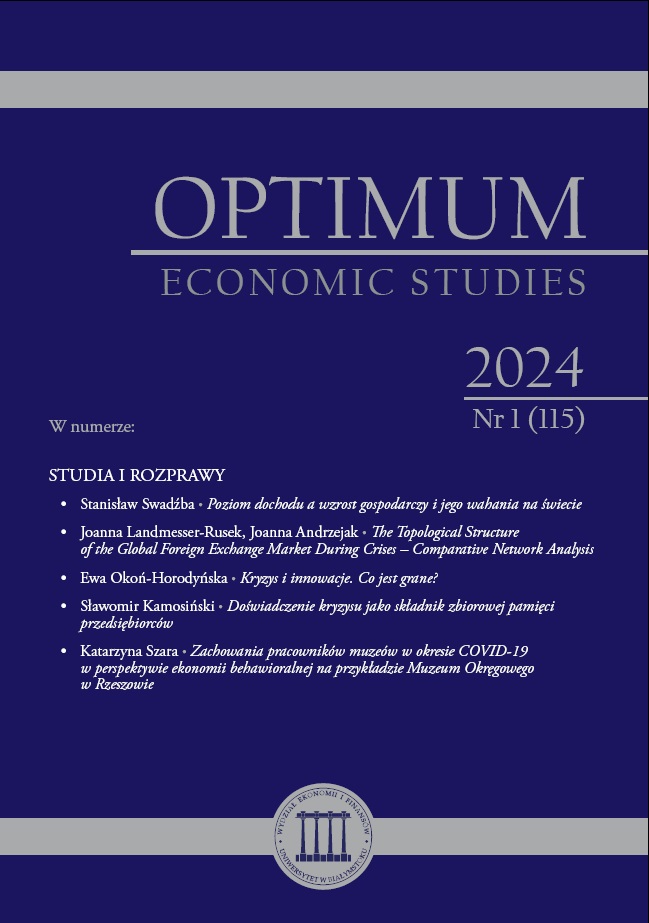ZACHOWANIA PRACOWNIKÓW MUZEÓW W OKRESIE COVID-19
W PERSPEKTYWIE EKONOMII BEHAWIORALNEJ
NA PRZYKŁADZIE MUZEUM OKRĘGOWEGO W RZESZOWIE
THE BEHAVIOR OF MUSEUM EMPLOYEES DURING COVID‑19
IN THE PERSPECTIVE OF BEHAVIORAL ECONOMICS
ON THE EXAMPLE OF THE DISTRICT MUSEUM IN RZESZÓW
Author(s): Katarzyna SzaraSubject(s): Library operations and management, Health and medicine and law, Human Resources in Economy
Published by: Wydawnictwo Uniwersytetu w Białymstoku
Keywords: COVID ‑19 pandemic; behavioral errors; non ‑medical interventions;
Summary/Abstract: Purpose – The pandemic has hampered the functioning of all cultural institutions,including museums. The only way to reduce the transmission of the virus in the popula‑tion was to change behavior. NPI (nonpharmaceutical interventions) are tools that triedto control the course of the pandemic. The aim of the article was to identify behavioralerrors in the work of professional employees of the District Museum in Rzeszów duringthe COVID ‑19 pandemic.Research method – The method of critical literature analysis was used. In the form ofa case study, the work of the District Museum in Rzeszów was analyzed, using informationfrom participant observation and structured interviews.Results – The pandemic crisis has led to increased digital transformation activities andhighlighted problems related to the financing aspect. The identified errors in the behaviorof museum employees were errors resulting from information overload, uncertainty of thefuture, concerns about the use of interventions, and wishful thinking.Originality / value / implications / recommendations – The originality of the study resultsfrom the diagnosis of the research gap relating to museum employees in terms of their responseto non ‑medical interventions in the workplace during the COVID pandemic. Thereare no known analyzes of behavioral errors at the workplace in relation to non ‑medicalinterventions. Therefore, this is an innovative approach to the topic and important fromthe point of view of implementing regulatory solutions during the crisis.
Journal: Optimum. Economic Studies
- Issue Year: 115/2024
- Issue No: 1
- Page Range: 90-109
- Page Count: 20
- Language: Polish

